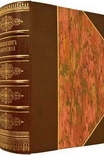Names for the Sea by Sarah Moss (moboreader TXT) 📗

- Author: Sarah Moss
Book online «Names for the Sea by Sarah Moss (moboreader TXT) 📗». Author Sarah Moss
7
The Icesave Thing
Back at work after the holiday, I’m preparing my teaching when the hum of people going up and down stairs, making coffee, stopping by for a chat, goes quiet. Radios come on, people listening to the news on their computers, and then there’s a collective gasp. Pétur and Matthew come to my office to tell me about it. The President of Iceland has refused to sign the Icesave agreement detailing how the Icelandic nation should repay the British government for compensating British investors in the bank that ran the Icesave accounts. Matthew is doleful; now things are going to get even worse, he says. People will have to realise that they can’t just blame politicians and bankers for everything. (Why not, I ask, there was no referendum about not regulating the banks.) We’re already at breaking point, says another colleague, coming in to make sure the foreigner is properly briefed. It’s desperate here now; Icelanders have nothing and are going to have nothing for generations to come. Can’t they see that? Pétur, who likes a little anarchy and can’t see capitalism fall far or fast enough, is elated. Now we’ll see some proper action, he says, twinkling and rubbing his hands. I know I don’t really understand the detail of the financial issues issues and I’m not sure most Icelanders – or Brits – do either. Pétur wanders off. While Matthew’s trying to explain, there is a series of explosions outside the building. Our eyes meet. Bombs? In Iceland? There’s reason to protest, of course (exactly what reason will have to wait for another day), and people are angry but – fireworks, says Pétur, putting his head round the door. Not the revolution. Pity.
I haven’t seen fireworks in Iceland before. They turn out to be marking the ‘last day of Christmas’, which – since we are on the edge of the Judeo-Christian tradition here – means not Epiphany but the day the Yule Lads return to their lair on Esja. It’s the tradition, says Matthew, to use up the fireworks left over from New Year. The fusillade goes on, getting louder as the sky darkens, until as midnight approaches the whole city is ablaze, the sky screaming. These aren’t the low-level garden displays put on at home for Bonfire Night. It’s all higher, brighter, louder, more, going on longer, from mid-afternoon dusk until the early hours, the air across town heavy with smoke. These are only the remnants from the real celebrations a week ago. The next day, I check the price of the fireworks left in the supermarket. The smallest box costs about £70. Morgunblaðið reports that Icelanders let off an average of three kilogrammes of fireworks each (including children) between New Year and the trolls’ retreat. This information intensifies my curiosity about the kreppa, of which I have still seen no outward sign that I can recognise. There’s far more poverty visible in Canterbury than Reykjavík, and has been far more poverty visible in every British city I’ve lived in, including Oxford and Bath. But I’ve been in Iceland long enough now for it to occur to me that it’s perfectly plausible that Icelanders would spend the last króna they don’t have on some really big fireworks.
There is a run of bright days in January, days when I go into Pétur’s east-facing office with a cup of mid-morning coffee to watch the sun rise red into a clear sky and hear the latest about what everyone calls ‘The Icesave Thing’. I leave work early to catch the last of a slow purple sunset on the way home. Cycling out along the peninsula one afternoon, I look back at the city and see that there is a pale green mist hanging over it, filling the space between Perlan and the church at Seltjarnarnes and trailing out over the sea beyond. At first I take it for another Arctic natural phenomenon – it has a beauty of a kind, this strange colour wrapping itself around the city’s landmarks and hovering on the lower slopes of Esja, as if the Northern Lights have somehow crept out by day – but when I read Morgunblaðið’s English website I understand. Not aurora but smog. Morgunblaðið says the smog is here ‘because there’s not enough wind’, and when I ask the students the next day they confirm this. It always happens, they say, when winter days are still. It’s because of the weather. But it’s not because of the weather, it’s because of the





Comments (0)